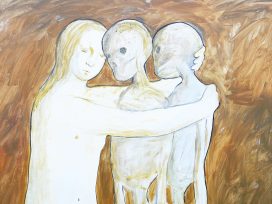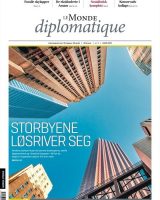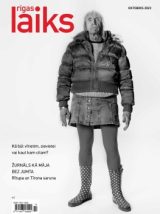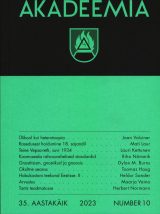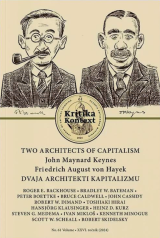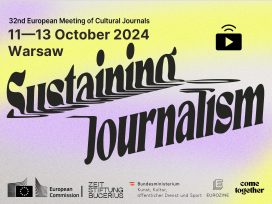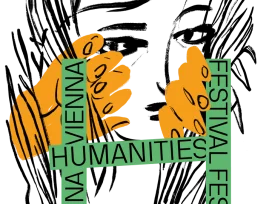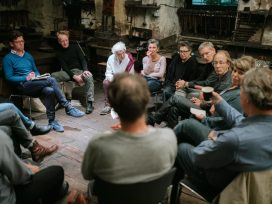Protesting is one of democracies most important tools. Going out on the street can change laws, make presidents fall, and transform the fate of a nation. But it never comes at an easy cost.
Articles
The gift of reflection
Topical: 2024 reads
Our choice of Eurozine articles and talk show episodes from 2024 reflects, both analytically and personally, on shifting cultural landscapes: from escalations of violence, invasive technologies and media sustainability to gut feelings and life-changing moments.
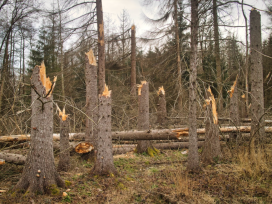
From carbon absorber to emitter: monoculture, fires, disease and storms are reversing the European forest’s natural role as a Co2 sink. Read about the forests that threaten climate neutrality.
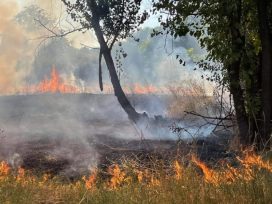
Property development pushed on green space in Bucharest has become comparable with the drugs market for profitability. Investigating the trail of questionable ownership rights since post-communist retrocession reveals acts of corruption and intimidation. Can parkland – a prerequisite for urban health and well-being, climate-change reduction and biodiversity – be saved from more illegal fires?
Recommended topics
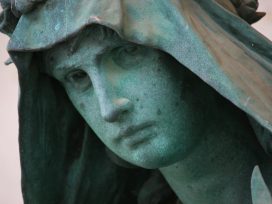
Although incoming migrants are demonized in political discourse, many European countries are struggling with a loss of population. In this episode of Standard Time, Eurozine’s colleagues talk about the idea of ethnic purity, outmigration, and finding a sense of belonging.
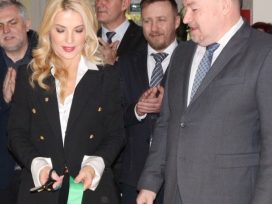
Slovakia’s right-wing nationalist minister Martina Šimkovičová is waging an ideological war on the country’s independent arts and media sector, targeting cultural institutions, discriminating against LGBTQIA+ organizations. Though fearing for their safety, cultural workers are fighting back via collective action, supporting those on strike.

Protesting is one of democracies most important tools. Going out on the street can change laws, make presidents fall, and transform the fate of a nation. But it never comes at an easy cost.

“Come Together” is founded on the principles of partnership and peer-to-peer learning among individuals within community media organizations situated in six different countries. Instead of generating entirely new knowledge, the initiative aims to unearth and leverage the existing wisdom residing within these organizations to foster innovative approaches.
Eurozine review
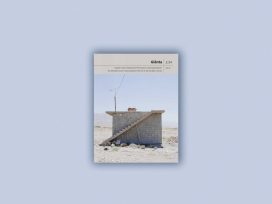
Nationless identity
Glänta 2/2024
On the past, present and future of Kurdistan: rethinking power structures; statelessness in a world of states; and Kurdistan as a war laboratory.
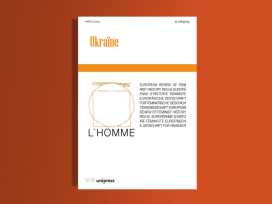
Hidden groundbreakers
L'Homme 1/2024
Localized political shifts have shaped Ukrainian women’s rights over the centuries: the Russian Empire once afforded property rights for aristocratic women in the south; socially active daughters of Greek-Catholic priests founded Galician societies under Habsburg rule; and forced migrants today forge new academic paths.
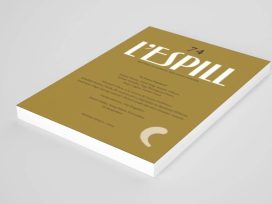
Breaking at the seams
L'Espill 74 (2024)
Spain’s communities, though autonomous, struggle with national cultural and economic hierarchy: Valencia calls for regional unity via federalism; Catalan tackles ‘ethnotypes’; and Basque defends its bid for reform.
Focal points
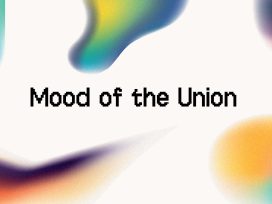
The European Parliament elections on 9 June are a referendum on EU policy since 2019. Will voters give Europe the green light for further progress, or pull the brakes? A new Eurozine series measures the political atmosphere in the EU and its neighbourhoods at this crucial moment.

Food and water systems under pressure: as the end of abundance becomes an everyday experience in Europe, we are thinking more closely about how our food reaches the table.

Post-revolutionary Ukrainian society displays a unique mix of hope, enthusiasm, social creativity, collective trauma of war, radicalism and disillusionment. With the Maidan becoming history, the focal point ‘Ukraine in European Dialogue’ explores the new challenges facing the young democracy, its place in Europe, and the lessons it might offer for the future of the European project.

Some observers, recalling the disasters of the 1920s and 30s, are suggesting that an anti-democratic counterrevolution on a global scale has begun. But is the writing really on the wall? Or does declinism prevent us from recognizing moments of democratic renewal?
